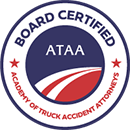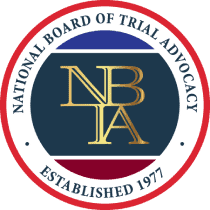What Is a Short-Haul Exception?
In the trucking world, drivers and trucking companies must abide by the Federal Motor Carrier Safety Administration’s regulations. One of the most important of these rules is the hours of service (HOS). These regulations are designed to prevent driver fatigue and reduce accidents due to overworked and exhausted drivers.
However, not all drivers are covered under these regulations. For short-haul drivers, they have a short-haul exception that gives them more flexibility with these hours. So, what are short-haul exceptions? In this article, let’s look at the basics of the law and how they apply to these specific drivers.
Hours of Service (HOS) Regulations
The short-haul exception is part of the overall HOS regulations. Under these FMCSA rules, commercial motor vehicle (CMV) drivers have restrictions on how long they can drive and work in a set amount of time. These regulations include:
- 11-hour driving limit: Drivers can drive a maximum of 11 hours after 10 consecutive hours off duty.
- 4-hour limit: After coming on duty, drivers may not drive beyond the 14th consecutive hour without taking at least 10 hours off duty.
- 60/70-hour limit: Drivers cannot exceed 60 work hours in 7 consecutive days or 70 hours in 8 consecutive days.
In these cases, long-haul drivers who travel large distances or spend days or weeks on the road must abide by these rules. However, the FMCSA recognizes that not all drivers operate under the same conditions. For these reasons, there is the short-haul exception.
Short-Haul Exception and Drivers
Short-haul exceptions allow those drivers who operate within a limited geographic area and perform shorter trips to bypass some of the traditional HOS rules.
There are two types of short-haul exceptions:
- 100 air-mile radius exception: This can apply to those who operate within a 100 air-mile (approximately 115 statute miles) radius from their regular work reporting location. Along with that, they must complete their workday within 12 consecutive hours. These drivers still have to take rest time. They are required to take at least 10 consecutive hours off duty after their shift. Under this exception, drivers are exempt from the standard 11-hour driving and 14-hour workday limits. However, they still have a 12-hour workday restriction.
- 150 air-mile radius exception (non-CDL drivers): This second exemption applies to drivers who operate within a 150 air-mile radius (approximately 172 statute miles) from their reporting location. Also, they need to complete their workday within 14 consecutive hours. However, they do not require a commercial driver’s license (CDL) to operate the vehicle.
When Drivers Do Not Abide by These Rules and Cause Accidents
If a driver and their company do not qualify for the short-haul exception and are involved in a crash, they may face legal and financial consequences. Failing to adhere to the appropriate Hours of Service regulations can lead to legal claims, regulatory penalties, and insurance complications.
In cases when the driver or their company operates outside the HOS rules or does not qualify for the short-haul exception, they may be found non-compliant with federal regulations. In the event of a crash, this non-compliance can be used as evidence of negligence or misconduct. As a result, the driver and their employer could be liable for any damages resulting from the crash.
Also, fatigue may have contributed to the crash if the driver was operating beyond the legal driving or work hours. This also violates HOS rules and can be considered strong evidence of negligence in personal injury lawsuits.
Trucking companies can be liable for these accidents as well. The company may be held responsible for failing to properly monitor and enforce compliance with HOS regulations. If the company encouraged the driver to work beyond the allowed hours or failed to maintain proper records, those negligent actions can leave them open for a lawsuit.
Along with legalities, there are penalties from the FMCSA. After a crash, they will investigate the matter, especially if there is a concern about regulatory violations.
In these cases, there could be substantial fines, especially if those violations have contributed to a crash. These civil penalties can range from $1,000 to $16,000 per offense, depending on the severity of the violation and whether it resulted in injury or death. For repeat or serious violations, the FMCSA has the authority to suspend or revoke a company’s operating authority, which can shut down their business.
Also, the driver may face disqualification from operating commercial motor vehicles if found to have committed these HOS violations. This disqualification can be temporary or permanent, depending on the circumstances.
All Drivers and Companies Must Abide by FMCSA Regulations
The short-haul exception offers a solution for drivers and companies that operate within a limited geographic area. However, failing to comply with HOS regulations, including misuse or improper application of the short-haul exception, can have serious legal, financial, and reputational consequences for both drivers and companies.
Whether the driver works on a long haul or can use the short-haul exception, they need to abide by these regulations. Failing to do so can result in a trucking accident, leaving them liable for damages and other losses of the other party. When these actions or inactions lead to a truck crash, the team at Trucking Injury Law Group is here to help you understand your legal options.






